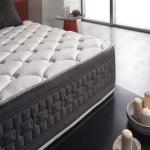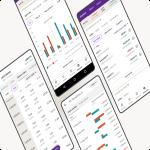With the spawn of Covid-19, hybrid-corporatism became the order of the day for employees and is commonly referred to as “the new normal” by many, but what does it mean for your tax return?
Well for starters this means you can deduct home office expenses in your tax return. However, this is governed by rules so that you don’t get penalized for non-compliance.
Common errors that people make are: claiming too high of a percentage of their home as an office, not having proper records, or claiming something that shouldn’t be claimed.
Regardless of whether you work on a full-time or part-time basis, as long as you work from home you can deduct certain expenses that are directly related to the use of your home.
Let’s dive right in.
Expenses You Can Claim.
1. Home office equipment.
Equipment such as computers, telephones, and printers directly related to your work is fully deductible.
2. Occupancy expenses.
- The ATO defines this as expenses you pay to own, rent, or use your home. These include:
- Mortgage interest
- Rent
- Council and water rates
- Land taxes
- House insurance premiums.
3. Home office furniture depreciation.
If you purchase a desk, chair, filing cabinet, or bookcase for your home office, you can claim the depreciation of these items on your tax return, provided these are used for work-related activities.
4. Office equipment depreciation.
If you purchase technology equipment you can claim their depreciation value over time. Items such as a personal computer, laptop, printer, cellphone, tablet, are amongst those you can claim for your home office.
5. Phone calls and phone rental.
You can claim the cost of work-related phone calls and rental for your office equipment.
6. Electricity bills.
The human body requires cooling or heating regardless of whether you are working or not. You also need lighting. You can at a later stage claim the cost incurred. However, the keyword here is “whilst” those were in use when you were working in your home office.
How Much You Can Claim?
Exactly how much can you claim?
How you work and what you claim influences the total deduction you can claim. It is important to consider that you must only claim the expenses that relate to your work. Let’s consider two case studies to determine eligibility:
1. John uses his home as a primary place of work and has a designated area for working. In this scenario, John can claim for occupancy and running expenses, as well as business phone costs and office equipment decline in value. For example
2. Mary, on the other hand, works at home but doesn’t have a designated area to carry out her duties, she cannot claim occupancy expenses and depreciation of carpets and light fittings. Mary, however, can claim a decline in the value of office equipment, including computers, desks, and chairs.
The ATO has set guidelines on the amount you want to claim, there is no maximum amount you can claim.
Methods of Claiming Home Office Deductions
1. Fixed-Rate Method
This method applies to John in the above case study, who also has records to prove their work-related expenses and their working hours. The fixed-rate amount is 52 cents per hour for electricity and gas expenses, cleaning costs, and a decline in the value of home office furnishings and fittings.
Other expenses you can claim include Internet expenses, computer consumables, stationery amongst others.
2. Actual Cost Method.
The Actual Cost Method allows you to claim the actual cost of expenses incurred, such as office lighting, heating, cooling, and other expenses. Due to its complexity, this method requires thorough calculating.
For example, if you are calculating the cost of utility and gas, you need the utility bill to calculate the cost per unit of power used. And for every appliance or light, you need to know the average units used every hour or the power consumption per kilowatt-hour. You also need to have the total annual hours for work-related use for those appliances.
As you can notice this is a complex method and therefore requires thorough record-keeping of receipts and other records to support your claims in the event of an ATO audit. An example of records you might need to produce when asked include:
- Receipts of any equipment you have purchased.
- Phone records that you can use to identify work-related calls.
- Diary logs highlighting small expenses $10 or less and totaling not more than $200.
- Expenses that you cannot substantiate, regardless of the value.
- Diary showing your operating expenses related to your home office.
Home Offices Expenses You Can’t Claim.
According to ATO, the most common errors made by taxpayers trying to claim home office deductions are:
- Coffee, tea, milk, and other general household items.
- Costs that relate to your children’s education such as desks, and iPads.
- Items your employer provides such as a laptop or a phone.
- Any items where your employer pays for or reimburses you for the expense.
Other expenses you cannot claim include:
- The cost of electricity and gas when these are used for non-work-related activities.
- Appliances that are in your home office but are not required or used for work, shouldn’t be claimed.
In conclusion , home office tax deductions are a legitimate way to reduce your taxable income. Keep the following tips in mind:
- Have a dedicated area for your work, this makes it easier to calculate and substantiate your claim.
- Keep records of expenses incurred during the year, these could be vital if an ATO audit takes place.
- Make sure your expenses are work-related.
- Even if you claim under the fixed-rate method, keeping records of your expenses will help you fill out the form.
- Remember that the ATO has a calculator to assist you, so rest assured.
As you can see from the above examples, making a claim on home office tax deductions can be a complex process. If you are unsure of anything, it is best to speak to an accountant or the ATO directly. There are a lot of accountants in Australia, but for affordability and expertise, you can get in touch with Tax Delivery’s Gold Coast accountants for help. Their personalized service and affordable rates make them a great choice for anyone looking for assistance with their taxes.
Also read about:
How to Choose Online Loan Offers Available In Switzerland
What is a Mobile App and Development Basics for Businesses
Why Should Your Business Have a Mobile App
















